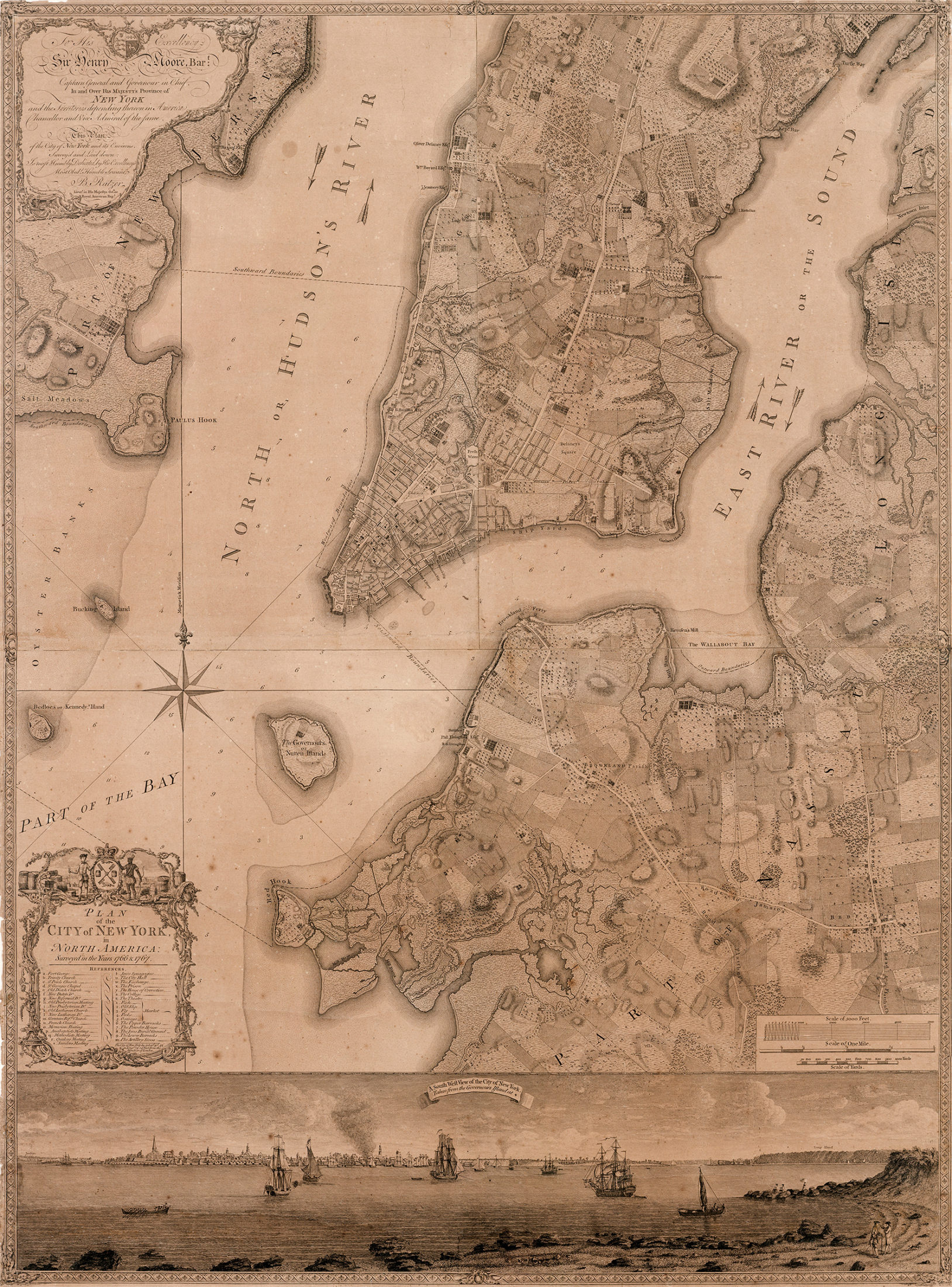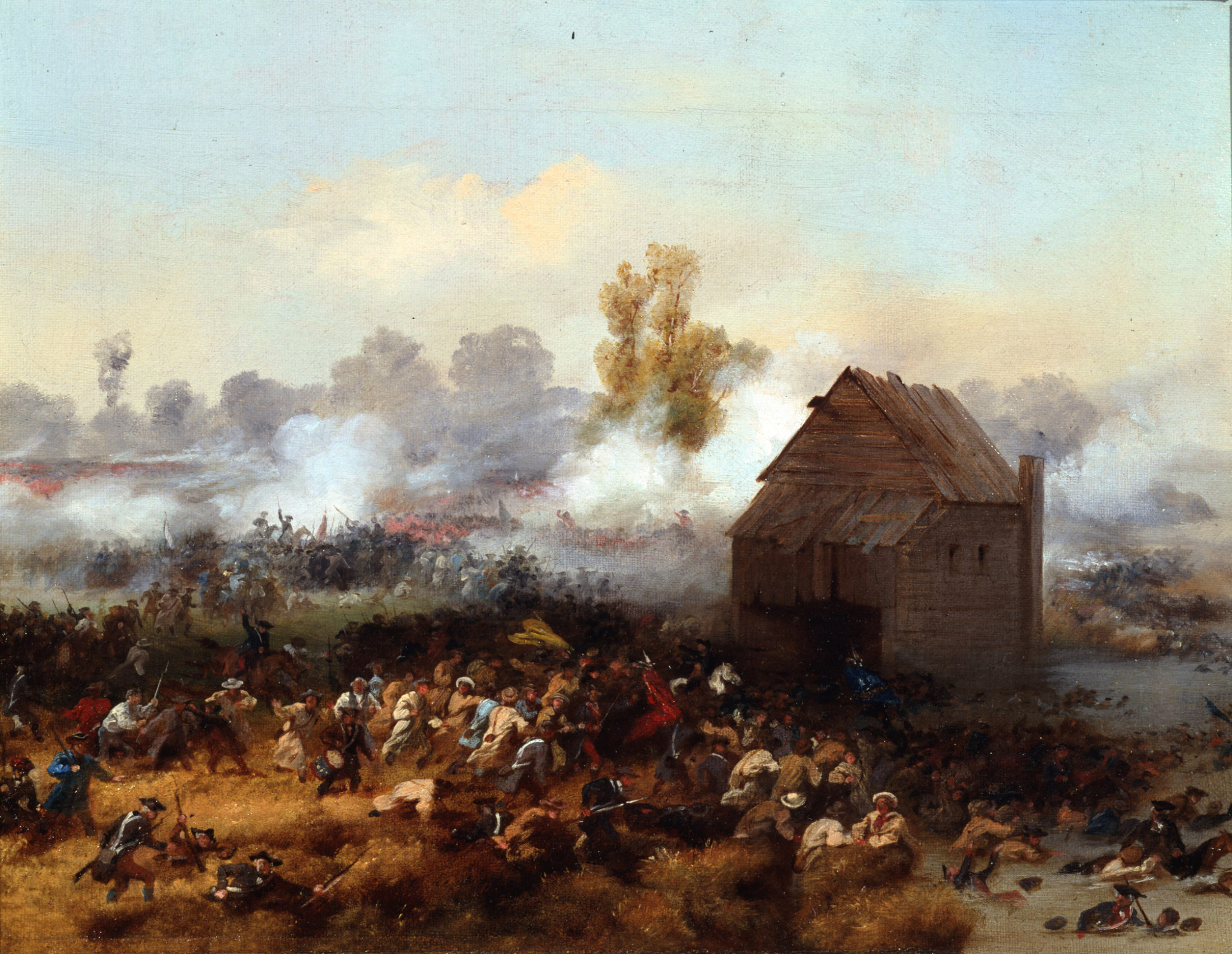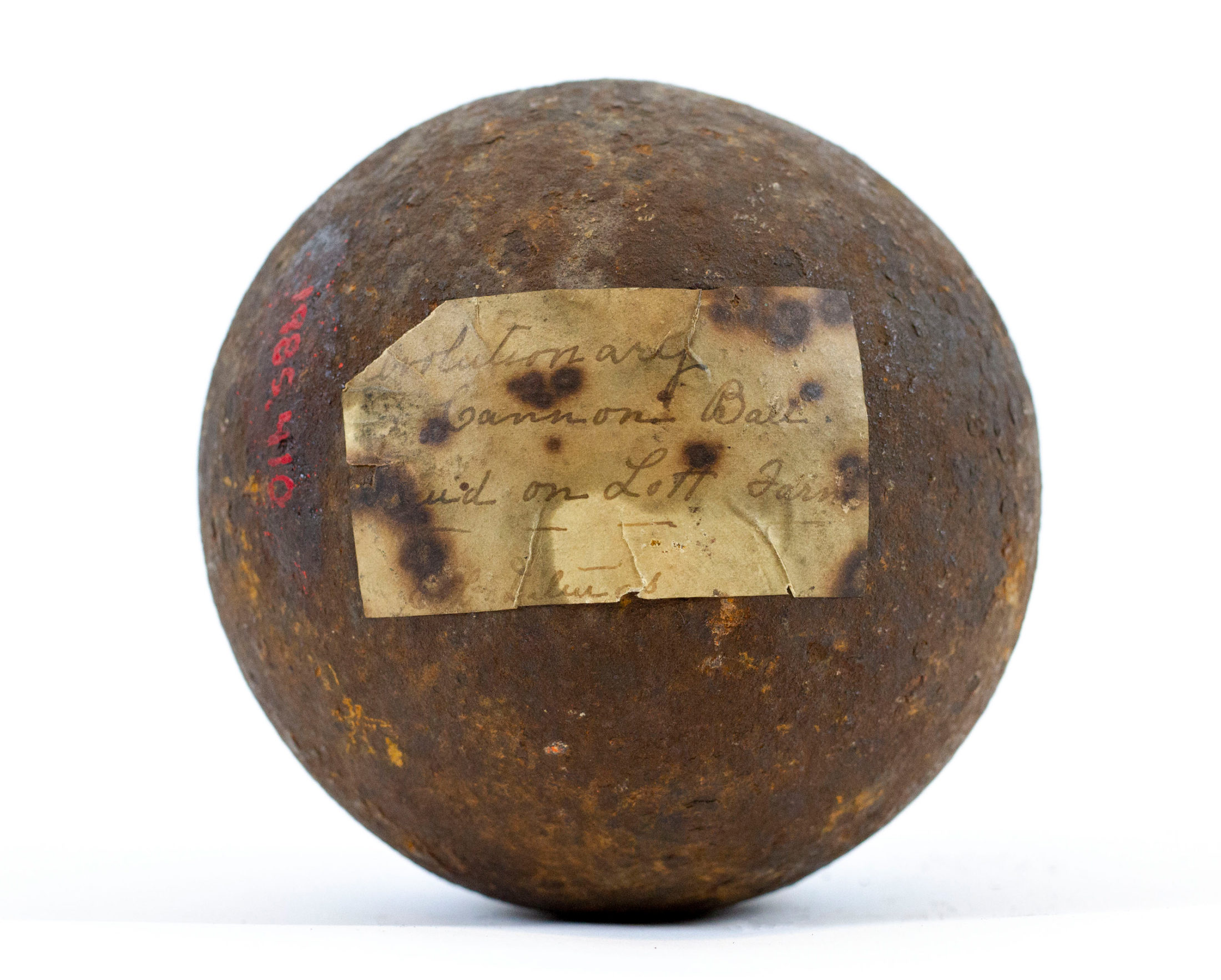Where the Revolution Began
The Battle of Long Island
Although the battles of Lexington and Concord are traditionally highlighted as the unofficial start of aggression during the Revolutionary War, the Battle of Long Island, on August 27, 1776, was the war’s first major military engagement following the adoption of the Declaration of Independence.
New York City, then colonial America’s second-largest city after Philadelphia, was a strategic target for the British. The American army was desperate to defend the wealthy commercial center with its thriving port from capture. Rural and sparsely populated Brooklyn, just across the East River from Manhattan on the western tip of Long Island, became the opening site of the British army’s New York offensive.

The Plan of the City of New York in North America, circa 1770
Bernard Ratzer
NYC-1770.Fl.F.Ra
Brooklyn Historical Society
Having anchored hundreds of ships in New York Bay earlier that summer, on August 22, a British force of approximately 15,000 soldiers began moving onto Long Island. Five days later, the British attacked. Washington’s American forces, half the size of the British, were out maneuvered and ambushed near the Vechte-Cortelyou House (today known as the Old Stone House). Hundreds of Americans were killed, more were captured, and Washington was forced to retreat into Manhattan.

Battle of Long Island, 1858
Alonzo Chappel
M1986.29.1
Brooklyn Historical Society
The American loss at the Battle of Long Island put Washington on the defensive. Within two months, New York fell to the British, who occupied the region until 1783, when the war ended. The Battle of Long Island may have been a defeat for the Americans, but locals were heartened that Washington’s army escaped to fight another day. Beginning in the 1800s, Brooklynites began considering the battle as an important milestone in the history of colonial America and preserving relics—cannonballs and musket balls—unearthed from the ground as construction reshaped the city.

Cannonball, late 18th century
M1985.410.1
Brooklyn Historical Society